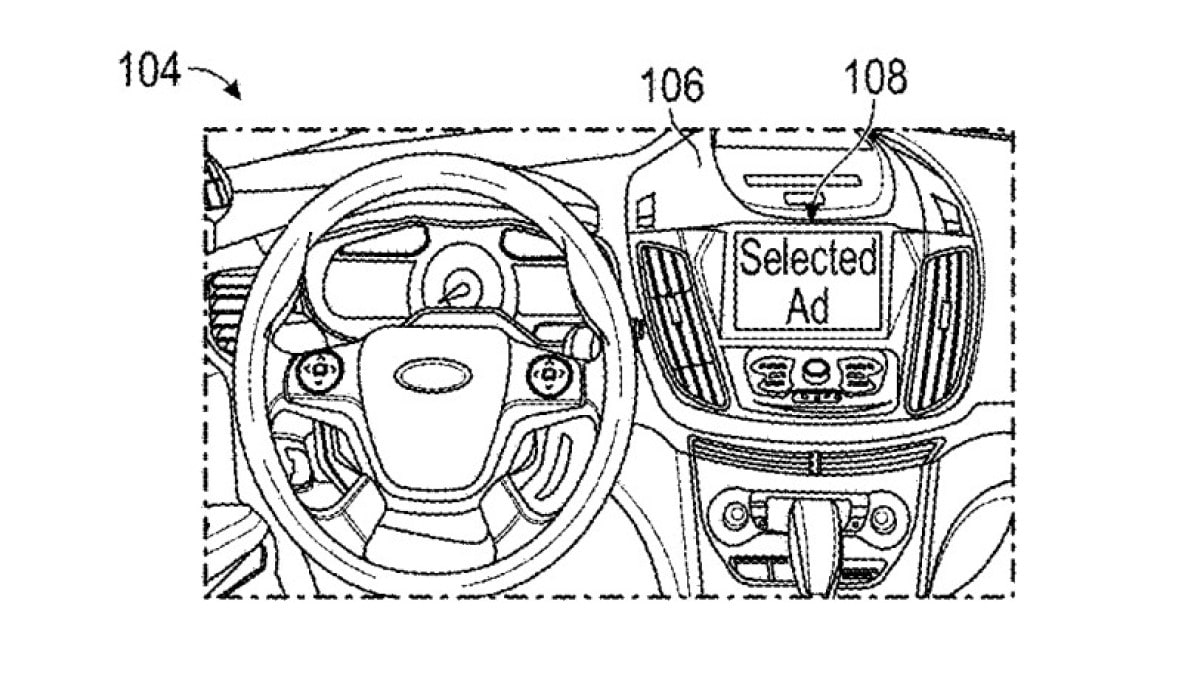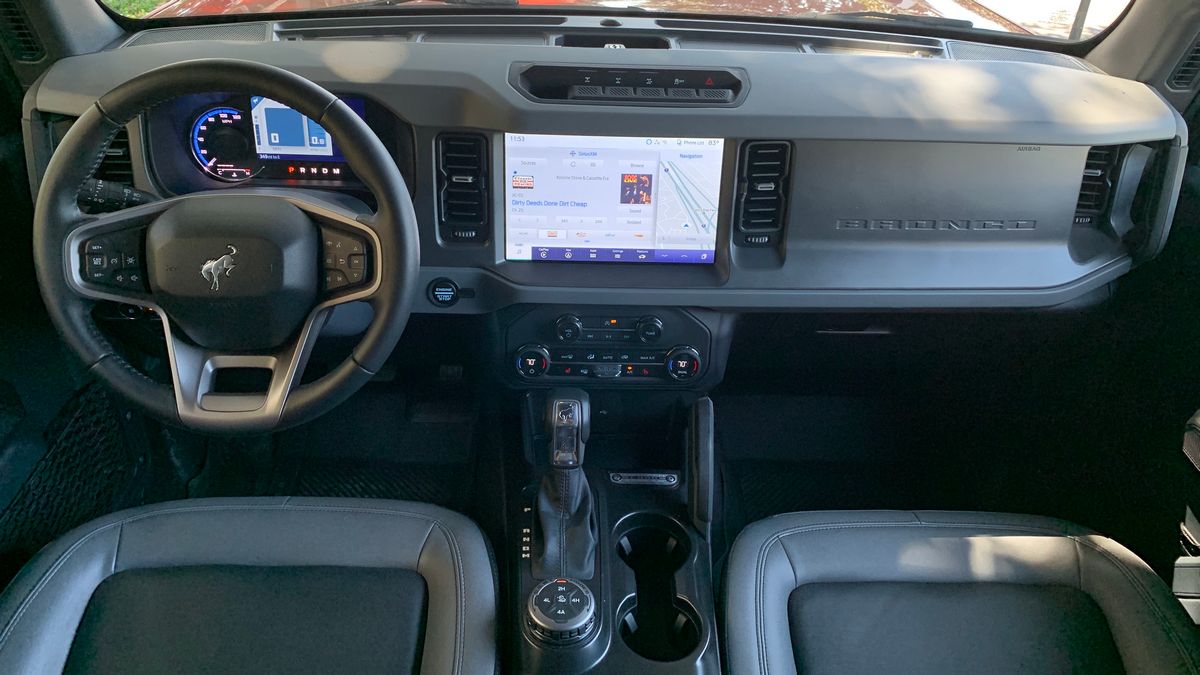Sigh. You knew it was coming. We knew it was coming. That doesn’t make the moment any less dreadful. But we’ll end the story by explaining that it might not be coming at all.
Ford Motor Co. has filed an application to patent a system that would track where you’re driving, listen to your conversations in the car, and use the data to serve you ads on a car’s speakers and screens.
Documents filed with the U.S. Patent and Trademark Office show that the system could use GPS destinations in the car to advertise stops along your route. If you’re traveling to a grocery store, it might suggest products on sale there or suggest an alternate store.
It could learn your preferences – for instance, Ford says the system might present one visual advertisement to passengers every 10 minutes. But, “user preferences may indicate that the passenger responds positively to audio advertisements,” so the system might “be more frequent such as presenting audio advertisements every five minutes.”

It might learn the preferences of people who regularly use a car and change its ads based on “when a particular user is identified” by in-vehicle cameras or microphones. It might even select ads by “listening to conversations between occupants in the vehicle” and parsing them for “keywords or phrases” that trigger particular advertisements.
Safety features would keep it from displaying visual ads to the driver while moving or enable it to shut down in school zones.
Car Privacy a Growing Concern
Privacy in the car is a growing concern for American drivers. Over the past year, a series of media stories have shown that automakers are particularly bad at respecting owner privacy.
One year ago today, a major investigation from privacy researchers at the Mozilla Foundation found cars “the official worst category of products for privacy that [researchers had] ever reviewed.” They found that automakers routinely reserved the right to gather startling amounts of data on drivers and even passengers.
A privacy disclosure all Nissan buyers sign allows the company to “collect and share your sexual activity, health diagnosis data, and genetic information and other sensitive personal information for targeted marketing purposes.”
Subaru’s user agreement specifies that even riding in a Subaru counts as consent for the company to collect data.
A later New York Times report showed that several automakers track every time some owners drive and then sell reports on their driving to insurance companies. A congressional investigation found car companies selling driver data for as little as $0.26.
Now, Some Good News
Now that you’re full of existential dread and considering buying a used car from the 1970s, here’s a little good news.
Automakers patent technologies they never use all the time.
Several automakers are among the most aggressive users of America’s patent and trademark system. They patent many wild ideas but never follow through on them.
Tesla, not kidding you here, holds a patent for a system that uses lasers to clean a windshield. Toyota holds a patent for an in-car fragrance system that can also dispense tear gas for self-defense. Ford holds a patent for a conveyor belt that brings items from the trunk to the front seat.
Even companies that only think about building cars hold patents for them. Google holds a patent for a hood sticky enough to immobilize a human being. It’s meant as a safety device – if you hit a pedestrian with your car, they’d stick to the hood instead of bouncing off and getting a second set of injuries from hitting the road. But imagine washing it after a drive through Louisiana in bug season.
An idea doesn’t have to be good to qualify for a patent. It just has to be novel.
Ford: Don’t Read Much Into A Patent Application
Ford is already backing away from the in-car ad system.
A company spokesperson tells us, “Submitting patent applications is a normal part of any strong business as the process protects new ideas and helps us build a robust portfolio of intellectual property. The ideas described within a patent application should not be viewed as an indication of our business or product plans. No matter what the patent application outlines, we will always put the customer first in the decision-making behind the development and marketing of new products and services.”
But the Idea Fits Into a Trend
Still, the idea fits into a pattern in the auto industry.
Americans buy cars less often than they used to. The average car on American roads is nearing 13 years old. Half the cars around you in traffic are older.
That has automakers searching for a way to make money off the car you already own. Some have explored subscription fees for car features, so even used car buyers could owe payments to use parts of their cars.
Ads pushing you to stop for breakfast on the way to work could be part of the car of the future.








